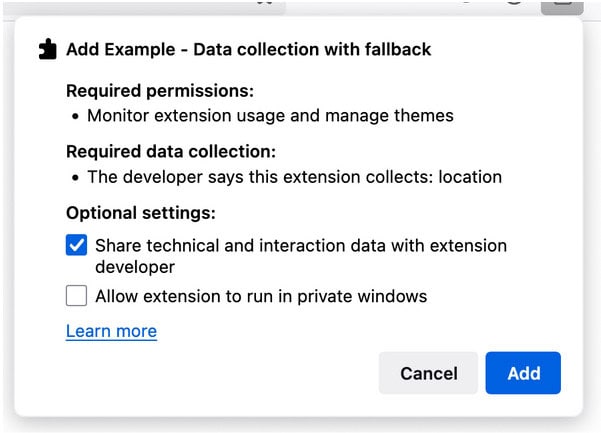Mozilla is introducing a new privacy framework for Firefox extensions that will require developers to disclose whether their add-ons collect or transmit user data clearly. The policy takes effect on November 3, 2025, and applies to all new Firefox extensions submitted to addons.mozilla.org.
According to Mozilla’s announcement, extension developers must now include a new key — browser_specific_settings.gecko.data_collection_permissions — in their manifest.json files. This key specifies whether an extension gathers any personal data. Even extensions that collect nothing must explicitly state "none" in this field to confirm that no data is being collected or shared.
This information will be visible to users at multiple points: during the installation prompt, on the extension’s listing page on addons.mozilla.org, and in the Permissions and Data section of Firefox’s about:addons page. In practice, this means users will be able to see at a glance whether a new extension collects any data before they install it.

Mozilla says this new requirement will initially apply only to new extensions, not to updates of existing ones. However, once a developer starts using the new data-collection key in any version, all subsequent versions must continue to include it. Extensions missing this property when required will be blocked from submission and won’t be signed until corrected.
The policy ties into changes in Firefox versioning as well. Developers supporting older Firefox releases—below version 140 on desktop or 142 on Android—will still need to provide users with a clear, manual way to control data collection immediately after installation.
Lastly, Mozilla also confirmed that this is just the first phase of a broader rollout. In the first half of 2026, all Firefox extensions—new and existing—will be required to adopt this same disclosure framework. The organization promised developers “plenty of notice” before that happens, along with new tools designed to make the transition easier for both developers and users.
Image credits: Mozilla
